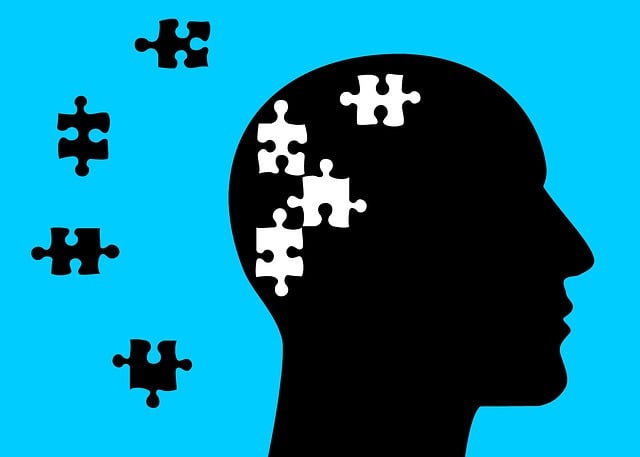Mental wellness apps are transforming access to emotional support, especially in areas like Lakewood with limited traditional therapy options. Catering to younger generations' needs, these apps offer personalized therapies, mindfulness techniques, and community outreach, including specific programs for gambling therapy. Effective digital solutions include open communication interfaces, resilience-building modules, and risk assessment tools tailored for professionals. The case study of Lakewood Gambling Therapy shows how app-based therapy can revolutionize mental health support, addressing barriers to traditional treatment with evidence-based strategies and interactive features. App development should involve a thoughtful process, including policy analysis, market research, design focused on emotional regulation, secure data storage, and user feedback.
Mental wellness apps have emerged as powerful tools in addressing contemporary mental health challenges. With a growing demand for accessible therapy options, understanding the need for these apps is more crucial than ever. This article explores the key features of effective therapy apps, using Lakewood Gambling Therapy as a case study to highlight their impact. We’ll also delve into the development process and considerations, emphasizing how innovative solutions like Lakewood Gambling Therapy contribute to enhancing mental wellness in today’s digital landscape.
- Understanding the Need for Mental Wellness Apps
- Key Features of Effective Therapy Apps
- Lakewood Gambling Therapy: A Case Study
- Development Process and Considerations
Understanding the Need for Mental Wellness Apps

In today’s fast-paced digital age, mental wellness apps have emerged as a crucial tool to support individuals in managing their emotional well-being. With issues like stress, anxiety, and depression becoming increasingly prevalent, especially among younger generations, there is a growing need for accessible and convenient solutions. Apps designed for mental health offer a unique approach to care by providing personalized therapies, resources, and support networks right at users’ fingertips. This shift towards digital mental health services is particularly significant in areas like Lakewood, where access to traditional therapy can be limited or cost-prohibitive.
The need for these applications is further highlighted by the complex nature of mental health issues. Effective management often involves a combination of techniques such as cognitive-behavioral therapy, mindfulness practices, and emotional regulation strategies. Mental wellness apps can facilitate this process by offering structured programs, tracking progress, and connecting users with peers or professionals through community outreach program implementations. Moreover, they play a vital role in risk management planning for mental health professionals by providing tools to monitor user outcomes and tailor interventions, ultimately enhancing the overall effectiveness of treatment.
Key Features of Effective Therapy Apps

In today’s digital age, mental wellness apps have emerged as powerful tools to support individuals navigating various challenges, including issues like Lakewood Gambling Therapy. These applications offer a convenient and accessible approach to therapy, allowing users to manage their mental health from the comfort of their homes. To be effective, such apps should incorporate several key features. Firstly, they must provide an interface that fosters open communication, encouraging users to express their thoughts and emotions honestly. This could include secure messaging systems or interactive journaling options.
Additionally, resilience-building modules can empower users with coping strategies to manage stress, anxiety, or depression. These might involve guided meditations, cognitive-behavioral therapy (CBT) techniques, or mood management tools that help track and regulate emotional states. Risk assessment features tailored for mental health professionals are also beneficial, enabling them to monitor user progress and provide timely interventions. Effective therapy apps should thus strike a balance between digital innovation and evidence-based practices to create a holistic therapeutic experience.
Lakewood Gambling Therapy: A Case Study

The case study of Lakewood Gambling Therapy provides a compelling insight into how digital solutions can transform mental health support. This app-based therapy program focuses on addressing gambling addiction, a growing concern in today’s society. By offering evidence-based treatments and personalized plans, it empowers users to regain control over their lives. The platform incorporates various effective strategies, such as cognitive-behavioral therapy techniques, to help individuals understand and manage their impulses, a key aspect of stress reduction methods and mood management.
Lakewood’s innovative approach includes interactive features like self-awareness exercises, journaling prompts, and community forums, fostering engagement and accountability. These tools not only facilitate personal growth but also encourage users to stay committed to their recovery journeys. The app’s success lies in its ability to provide accessible and discreet support, catering to individuals who may face barriers to traditional therapy, thus serving as a powerful example of modern mental wellness app development.
Development Process and Considerations

The development process for a mental wellness app should be thoughtful and inclusive, incorporating insights from various stakeholders, including mental health professionals, users, and developers. It’s crucial to start with a thorough Mental Health Policy Analysis and Advocacy to understand the gaps in existing resources and align the app’s features with current best practices. This phase involves market research, competitor analysis, and stakeholder consultations to define the app’s unique value proposition.
Focusing on Emotional Regulation techniques and incorporating user-friendly interfaces is key during the design phase. Features like mindfulness exercises, mood tracking, and personalized recommendations should be carefully implemented based on evidence-based practices. As development progresses, integration of secure data storage and privacy measures becomes essential to protect sensitive user information. Regular testing and feedback loops are vital to ensure the app’s effectiveness and address any bugs or usability issues before launch. Remember, a well-crafted mental wellness app, such as those offering Lakewood Gambling Therapy resources, can significantly contribute to improving access to care and supporting users’ journeys towards better mental health.
Mental wellness apps, such as the innovative Lakewood Gambling Therapy, are transforming access to therapeutic support. By integrating evidence-based practices into user-friendly digital platforms, these tools empower individuals to take charge of their mental health. As technology advances, app development should continue to prioritize privacy, efficacy, and personalization to meet the diverse needs of users seeking improved well-being.














